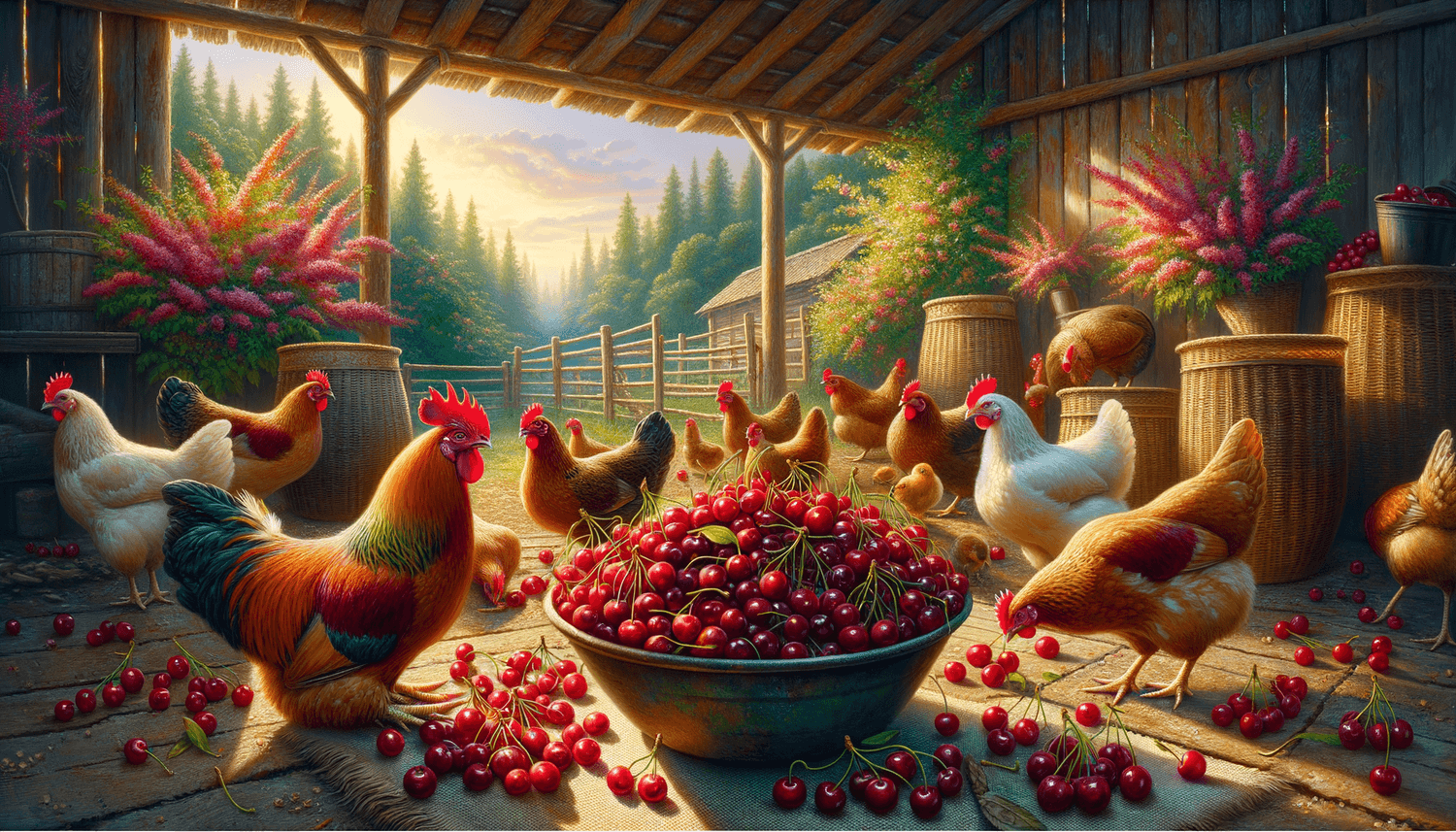No, chickens should not eat chokecherries. Chokecherries contain compounds that can release cyanide when digested, which is toxic to chickens.
Quick Summary
- Chickens cannot eat chokecherries.
- Chokecherries contain cyanogenic compounds, which can be toxic.
- Potential risk includes cyanide poisoning.
- There are no safe recommended feeding guidelines for chokecherries.
Overview of Chokecherries
Chokecherries are small, dark-colored fruits that belong to the Prunus genus. They are commonly found in North America and are known for their tart flavor. A chokecherry is not typically consumed fresh due to its astringency but is sometimes used in jellies and wines after careful processing. These fruits contain vitamins and antioxidants, but also compounds that can be converted into cyanide, a toxic substance to many animals, including chickens.
Benefits and Risks of Chokecherries for Chickens
Although chokecherries possess antioxidants and may have health benefits for humans, these do not apply to chickens due to the potential release of cyanide in their systems. The risks strongly outweigh any possible benefits, making chokecherries a very dangerous food item for chickens to consume.
Feeding Guidelines
Since chokecherries pose a risk of cyanide poisoning, there are no safe feeding guidelines. Chicken owners should avoid offering chokecherries or any parts of the chokecherry plant to their flock entirely and ensure their chickens do not have access to these plants in their environment.
Alternatives
As an alternative to chokecherries, owners can offer their chickens a variety of other safe fruits such as chopped apples (without seeds), berries, and melons. These fruits are not only safe but also provide nutritional benefits for chickens.
Expert Opinions
Poultry nutritionists and veterinarians generally advise against feeding chokecherries to chickens. The consensus is that the risks associated with cyanide exposure from chokecherries are significant and that caution should be taken to prevent chickens from ingesting any part of the plant. No studies recommend the inclusion of chokecherries in a chicken’s diet.
Frequently Asked Questions
After learning about the risks associated with feeding chokecherries to chickens, you may have additional questions. Here are some answers to common concerns.
What should I do if my chicken eats a chokecherry?
If your chicken consumes a chokecherry, it’s important to monitor it closely for any signs of distress such as difficulty breathing or weakness and consult a veterinarian immediately, as they may be able to provide treatment for cyanide poisoning.
Are any parts of the chokecherry tree safe for chickens?
No parts of the chokecherry tree are considered safe for chickens because all parts contain cyanogenic compounds that can lead to the release of cyanide when ingested.
How can I prevent my chickens from eating chokecherries?
To prevent your chickens from eating chokecherries, remove any chokecherry trees from your property or securely fence them off from your chickens’ foraging area. Regularly inspect the chickens’ range for dropped fruits or branches that could pose a risk.

















